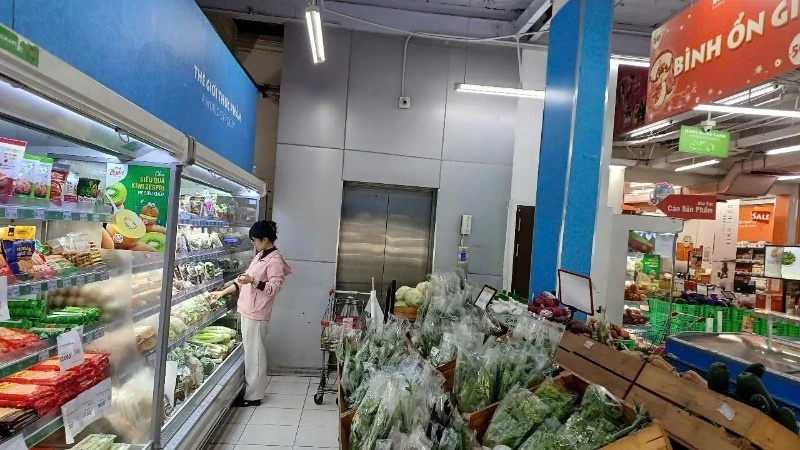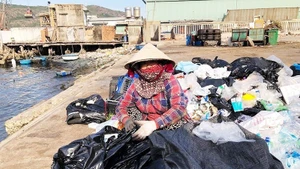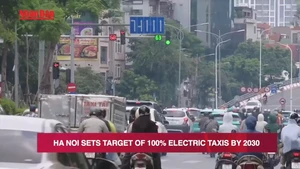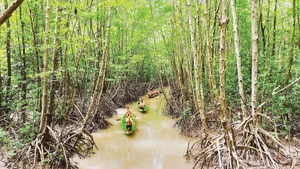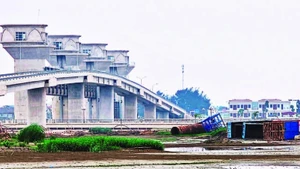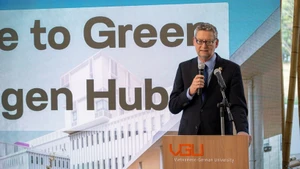A potential threat
According to a report by the Ha Noi Department of Agriculture and Environment, the city generates around 80 tonnes of plastic waste daily. Although the sorting of plastic waste at source is well implemented, it is not thorough, especially for low-value single-use plastics. This waste is often discarded into the environment, where it is difficult to decompose, posing risks to water sources, soil, and human health.
Clause 14, Article 3 of Government Decree No. 08/2022/ND-CP dated January 1, 2022, clearly defines single-use plastic products as trays, food containers, bowls, chopsticks, cups, knives, forks, spoons, straws, and other eating utensils containing plastic, designed and marketed for single use before being discarded into the environment.
For accommodation establishments such as hotels and guesthouses, it will be prohibited to use single-use plastic items such as toothbrushes, shower caps, and combs. Restaurants, eateries, and supermarkets will not use plastic bags or foam boxes for packaging nor any single-use plastic products for takeaway food (except pre-packaged plastic-containing items).
The municipal People's Council has set the implementation timeline as January 1, 2026, for hotels, tourist areas, and guesthouses; January 1, 2027, for supermarkets, markets, and convenience stores; January 1, 2028, for public authorities. The aim is for a complete phase-out of single-use plastics and non-degradable microplastic-containing products citywide by early 2031.
These decisive actions to reject single-use plastic products demonstrate Ha Noi’s determination to reduce plastic pollution at its source, aiming for a capital that is “bright, green, clean, and beautiful.”
The determination of Ha Noi's leaders has been positively received by the majority of residents. Bang, owner of a small restaurant on Hang Duong Street, shared: “I am ready to eliminate plastic items right away. Although convenient, I think single-use plastics are not good for users or the environment. The only thing is, sellers like us need something to replace them, or it will be difficult to sell takeaway orders.”
This is also the view of Trung, a hotel owner on Cua Nam Street: “After learning about the city’s policy to ban single-use plastics, I searched online but haven’t found any supplier of alternative products for the banned items. Single-use hotel supplies are cheap and easy to equip. If we switch to other products, the cost may affect the room rates charged to guests.”
Seeking alternative material solutions
In reality, single-use plastic products are often not sorted at source but mixed into household waste, while waste pickers are not interested due to their low value and lack of buyers for recycling.
Sang, a staff member at a scrap collection point in Trieu Khuc village, confirmed: “Our facility does not buy single-use plastics; they are useless. I’ve tried selling them to recycling plants, but they reject them. Many waste pickers bring these plastic items to sell but can’t, so they end up dumping them in the fields or empty lots around the village. Occasionally, an environmental service truck comes to collect them.”
According to Le Hoai Nam, Deputy Director of the Environment Department (Ministry of Agriculture and Environment), the harm of plastic waste to the environment is extremely serious if not properly treated. Reducing the use of plastic items is an effective solution to minimise harmful plastic waste and should be promoted and expanded. Gradually, people need to develop the awareness to voluntarily say no to plastics, especially single-use plastics.
According to a report by the Viet Nam Plastics Association, with an annual growth rate of 10%, Viet Nam is a very vibrant market for plastic products. Meanwhile, the recycling capacity of domestic enterprises is still limited, and raw materials are mainly imported from abroad. Therefore, authorities need to control raw material supplies while establishing capable recycling facilities, as part of measures to limit plastic items and waste in the environment.
Experience from many developed countries in restricting and banning plastic products shows that they have fully prepared alternative products.
In addition to state policy and financial support for businesses and establishments, ensuring a sufficient supply of alternative products makes the transition simpler and faster.
Currently, Viet Nam does not have many manufacturers producing and supplying alternative materials that meet the criteria fulfilled by single-use plastics, except for environmental impact.
Therefore, to make the policy of eliminating plastic products effective, authorities and local governments need to implement synchronised measures, including researching alternative products and supporting manufacturers and frequent users of single-use plastics in the transition process.
